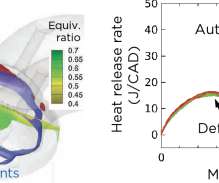Co-Optima report highlights most significant R&D achievements in FY2019
Green Car Congress
JUNE 4, 2020
After completing a major body of research focused on boosted (also known as turbocharged) spark ignition (SI) engines in Fiscal Year (FY) 2018, Co-Optima’s FY 2019 LD research and development (R&D) shifted to multimode solutions that employ multiple engine operating modes to maximize engine efficiency and fuel economy.












Let's personalize your content